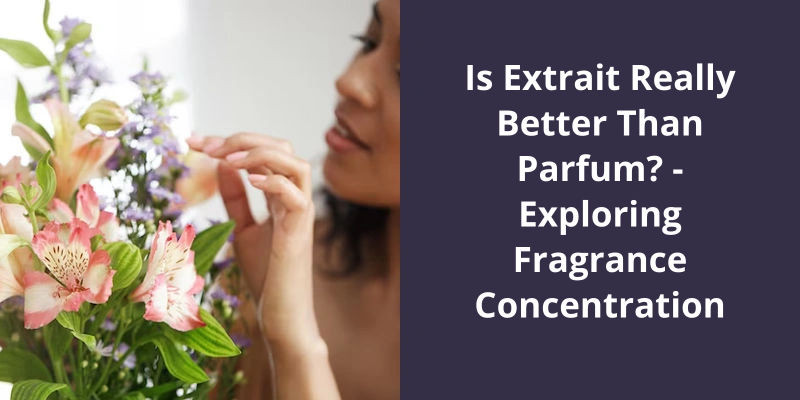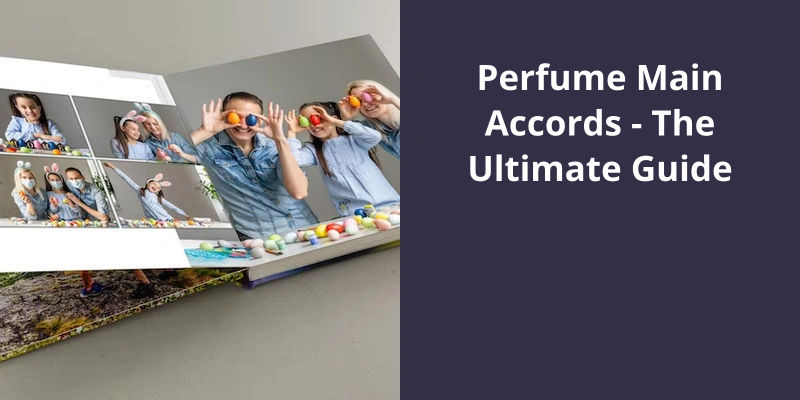Perfume smell travels far because of the rate of evaporation and diffusion of molecules. The ingredients in perfume are volatile, meaning they evaporate quickly, transforming from liquid to gas. When you spray perfume, these evaporated molecules spread out rapidly into the air. This is also known as diffusion. Over time, the smell can reach distant areas as the molecules continue to spread out. The heat from our body also helps in evaporating perfume quicker. Furthermore, the molecules are small and light, which allows them to travel further distances.

Can We Smell Perfume From a Distance?
Diffusion is the process by which particles of matter move from an area of high concentration to an area of low concentration. In the case of perfume, the fragrance molecules will move from the source, such as a persons skin or clothing, and spread out into the surrounding air. As these molecules move away from the source, they become less concentrated and more dispersed, causing the scent to become weaker and less distinct. However, the fragrance may still be detectable from a distance if there’s enough of it present in the air.
The ability to smell perfume from a distance may also depend on several other factors, such as the strength and type of fragrance, the air flow and humidity in the environment, and the sensitivity of the individuals sense of smell. Some fragrances, such as stronger floral or woody scents, may be more easily detected from a distance than lighter or more subtle fragrances. Similarly, the presence of wind or air currents can help to carry the fragrance further, while high humidity can cause the scent to cling closer to the source.
Some cultures may value strong and noticeable fragrances, while others may prefer more subtle scents. Personal preferences can also affect the degree to which someone is able to detect and appreciate a particular fragrance.
As such, the ability to detect perfumes from a distance is likely to be a subjective and highly individual experience.
The Science Behind How Perfumes Are Made and the Different Ingredients Used
Perfumes are created using a careful combination of various ingredients such as essential oils, synthetic fragrances, solvents, and fixatives. Perfume makers use a range of methods to blend these elements, including distillation, pressing and extraction. The final outcome can vary greatly depending on the concentration of each ingredient and the order in which they’re added. Different perfumes can have different notes and intensities, based on the various components that makeup their composition. Overall, the process of making perfume is a detailed and precise science, which requires a deep understanding of the properties of different scent molecules.
Now that we understand how perfume molecules travel through the air via diffusion, let’s explore the science behind how perfumes are made and a few tips to ensure your scent lasts all day.
Is Opening a Perfume Bottle Diffusion?
As soon as the bottle is opened, the gas particles rapidly begin to move from this higher concentration area to lower concentration areas, making their way to the other side of the room. This is a process known as diffusion. The speed and distance of diffusion depend on various factors such as temperature, pressure, and concentration of the gas.
The perfumes scent diffuses by moving from a region of high concentration in the bottle into many other regions of lower concentration throughout the room. This movement is caused by the continual random movement of the perfume molecules, driven by Brownian motion. Eventually, each molecule will have traveled a certain distance and collided with numerous other particles, and will end up evenly distributed throughout the air in the room.
Diffusion is a complex process with many applications in everyday life. It plays a significant role in the fields of chemistry, biology, and physics. It’s the driving force behind how certain substances move through various mediums like air, water, soil, and biological membranes. Scientists use diffusion to study many things, ranging from atmospheric chemical reactions to how lung cancer cells metastasize throughout the body.
In perfume-making, diffusion is crucial because it determines how much of a scent the wearer will actually experience. A fragrance with strong diffusivity can fill a room with it’s scent quickly, whereas a weak diffusivity will result in a subtle and mild scent. Therefore, perfumers must carefully adjust their fragrances to make sure they’ve the appropriate amount of diffusion.
This collision of perfume molecules with air particles results in an even distribution of the scent throughout the room.
Source: If a perfume bottle is opened at one end of a room … – Vedantu
Now that we know how perfume particles mix with the particles of air and spread in a room, let’s explore another interesting phenomenon related to fragrance – the science behind how different perfumes smell differently.
Why Does Perfume Smell Fill the Whole Room?
However, the rate of diffusion largely depends on the concentration of the perfume. Higher concentration leads to faster diffusion and a stronger smell. That’s why a small drop of concentrated perfume can fill a whole room with it’s scent.
Increasing the temperature of the room increases the kinetic energy of the perfume particles. This increase in energy makes them move faster, leading to faster diffusion. This is why a perfume smells stronger in the summer as compared to winter.
The size of the room also matters when it comes to diffusion. The larger the room, the harder it’s for the perfume particles to reach every corner of the space.
The type of surface in the room can also affect how a perfume smells in it. Smooth surfaces such as glass or tiles allow for faster diffusion as compared to rough surfaces such as carpets or curtains. Therefore, if you want to maximize the smell of your perfume, you may consider spraying it on a smooth surface.
A wider opening allows more perfume particles to escape at once, leading to faster diffusion.
How Perfume Affects Our Mood and Emotions
Perfume affects our mood and emotions by essentially changing the chemistry of our brain. The scents of certain perfumes can trigger different responses and emotions in each individual, affecting our mood and overall well-being. This is because scent is connected to the limbic system, the part of the brain that’s responsible for emotions, memory, and behavior. Therefore, wearing a particular fragrance can invoke positive emotions, influence behavior, and even alter our perceptions of others.
Now that we understand what sillage is, let’s explore the importance of choosing the right perfume for different occasions and how to make scent last longer on the skin.
What Is the Lingering Smell of Perfume Called?
The sillage of a perfume can vary greatly depending on the type of fragrance and the individual wearing it. For example, a musky or floral scent may have a stronger sillage than a citrus or light fragrance. Additionally, factors such as the temperature, humidity, and even the skin type of the wearer can impact the sillage of a perfume. Some people prefer a strong sillage, as it can leave a lasting impression and add to their overall presence, while others prefer a more subtle fragrance.
This is because each individuals natural scent and body chemistry can interact with the fragrance and alter it’s sillage. It’s why the same perfume can smell different on different people and why it’s important to try a fragrance on your skin before purchasing it.
It’s influenced by various factors such as the type of fragrance, the wearers skin type, and the environment. Overall, it’s the lingering scent of a perfume that can evoke memories and leave a lasting impression on those around us.
What Are the Different Types of Fragrance Families and How Do They Impact Sillage?
- Floral Fragrances
- Oriental Fragrances
- Citrus Fragrances
- Woody Fragrances
- Fougere Fragrances
- Chypre Fragrances
- Aquatic Fragrances
- Gourmand Fragrances
Conclusion
Overall, this phenomenon is a testament to the intricate science behind the chemistry of scent and how it interacts with our senses.





